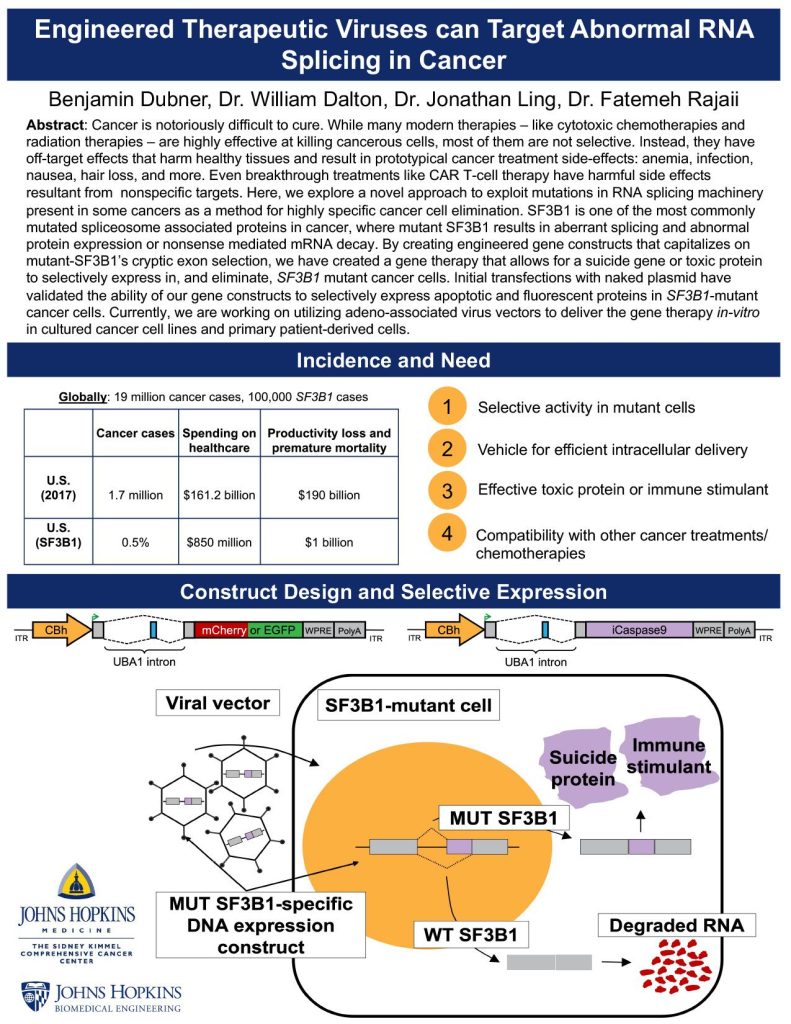Engineered Therapeutic Viruses can Target Abnormal RNA Splicing in Cancer
Team: Benjamin Dubner
Program:
Biomedical Engineering
Project Description:
Cancer is notoriously difficult to cure. While many modern therapies – like cytotoxic chemotherapies and radiation therapies – are highly effective at killing cancerous cells, most of them are not selective. Instead, they have off-target effects that harm healthy tissues and result in prototypical cancer treatment side-effects: anemia, infection, nausea, hair loss, and more. Even breakthrough treatments like CAR T-cell therapy have harmful side effects resultant from nonspecific targets. Here, we explore a novel approach to exploit mutations in RNA splicing machinery present in some cancers as a method for highly specific cancer cell elimination. SF3B1 is one of the most commonly mutated spliceosome associated proteins in cancer, where mutant SF3B1 results in aberrant splicing and abnormal protein expression or nonsense mediated mRNA decay. By creating engineered gene constructs that capitalizes on mutant-SF3B1’s cryptic exon selection, we have created a gene therapy that allows for a suicide gene or toxic protein to selectively express in, and eliminate, SF3B1 mutant cancer cells. Initial transfections with naked plasmid have validated the ability of our gene constructs to selectively express apoptotic and fluorescent proteins in SF3B1-mutant cancer cells. Currently, we are working on utilizing adeno-associated virus vectors to deliver the gene therapy in-vitro in cultured cancer cell lines and primary patient-derived cells.
Team Members
-
[foreach 357]
[if 397 not_equal=””][/if 397][395]
[/foreach 357]
Project Mentors, Sponsors, and Partners
William Dalton, M.D., Ph.D. (Assistant Professor of Oncology)
Jonathan Ling, Ph.D. (Assistant Professor of Pathology)
Fatemeh Rajaii, M.D., Ph.D. (Assistant Professor of Ophthalmology)
Course Faculty
-
[foreach 429]
[if 433 not_equal=””][/if 433][431]
[/foreach 429]
Project Links
Additional Project Information
Project Photo

Project Photo Caption:
To see the full poster, click the poster link at the end of the page


